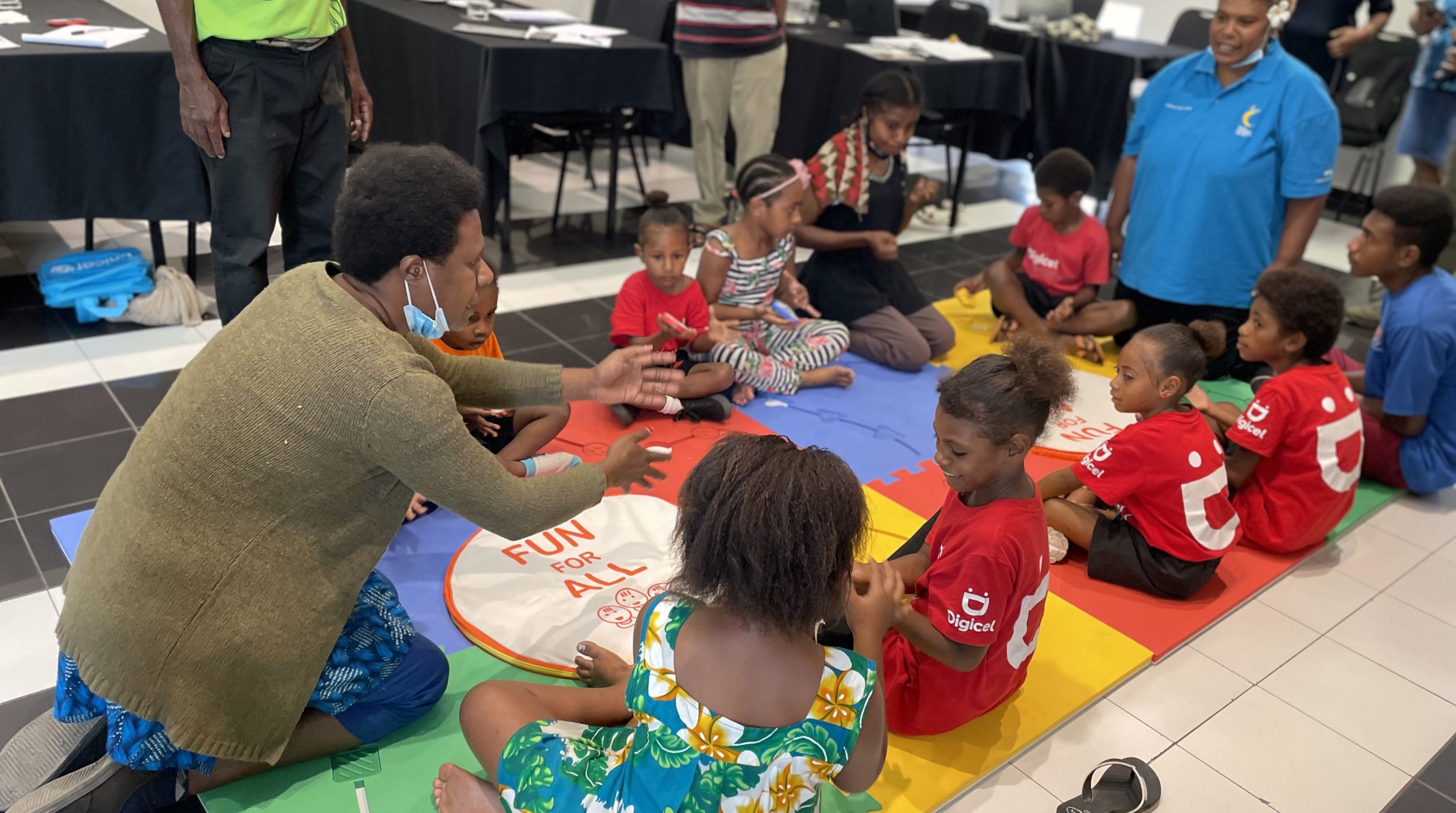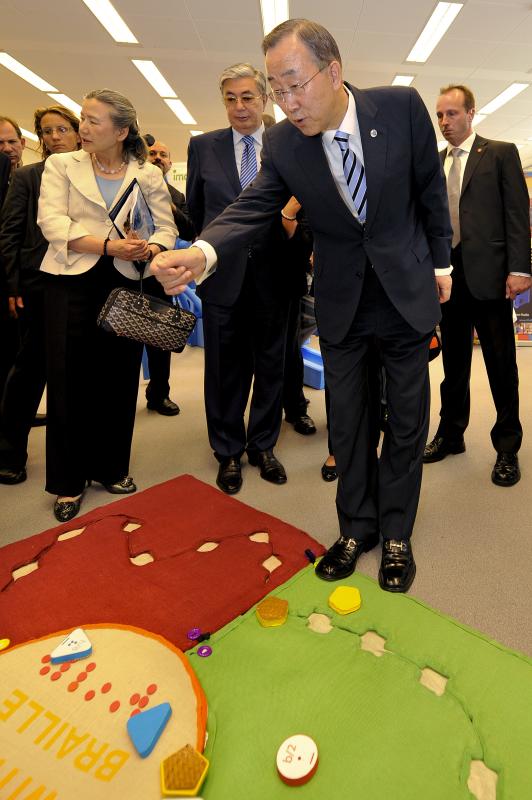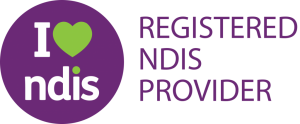
Reach & Match Partners with UNICEF and ChildFund to Accelerate Inclusive Education in Papua New Guinea
“As a teacher with vision impairment, I feel very empowered and confident after receiving the training, we focused on our abilities, but not disabilities. I can’t wait to see my students with vision impairment feel and touch the Reach & Match learning kit. I can see the impact of down the road 3 – 5 years…” Mr Desmond Bang, a teacher with vision impairment, on the impact of the Reach & Match program following the program training I conducted in Papua New Guinea last month.

Photo: Mr Desmond Bang, a teacher with vision impairment in the red shirt was touching and feeling the Reach & Match components.
Education Emergency Response and Recovery Plan (EERRP)
An estimated 2.4 million students in Papua New Guinea (PNG) experienced disrupted learning and long absences from school during lockdowns in 2020 and 2021 due to the COVID-19 pandemic (UNICEF PNG). Children with disabilities face additional interruptions and inequalities in accessing education.
To address this issue, the Education Emergency Response and Recovery Plan (EERRP) was developed, and funded by the Global Partnership of Education and the Australian Government. Inclusion is a special focus for the program, and Reach & Match is extremely proud to partner with UNICEF PNG and ChildFund PNG to use our program to support children with disabilities in nine Inclusive Education Resource Centres (IERCs) across five provinces in PNG.
Play-based Program Supports Inclusion and Education
Reach & Match® is a multi-award winning holistic learning program that has been designed through focused research and user testing to support early childhood learning outcomes and the inclusion of children with disabilities in mainstream Early Childhood Education services and preschools. It enables children with disabilities to play and learn alongside their peers and to build important physical, cognitive, language and social-emotional skills to support their wellbeing and learning journey.
The research-based program provides play-based activities focussing on seven core learning outcomes: Braille and print literacy, cognitive skills, sensory integration, sense of satisfaction, language enrichment, body movement and social interaction. The education activities are adaptable and easily integrated to support national curricula learning outcomes.

Photo: Teachers were role-playing Reach & Match games.
Training the Trainers
Reach & Match uses a training of trainers (ToT) model for local stakeholders, focussing on developing the capacity of educators to create an inclusive learning environment that promotes play-based teaching and learning for children of all abilities.
Master trainers are trained in inclusive education pedagogy and are equipped with the skills and competency to adjust activities based on the learning needs of all children. The program takes a holistic approach to education, involving parents and the community in supporting their children’s learning.
“I am really proud and excited about the training. The activities of role-playing and demonstrating will really help my students with hearing impairment to learn effectively and enhance their potential,” said Mrs Mary Sully, a teacher who did an amazing job in giving instructions to the students with hearing impairment using sign language.

Photo: Mrs Mary Sully on the right was explaining the Reach & Match game to her students with hearing impairment in sign language.
“We need to be mindful to work with children with different disabilities in the same room, we also need to decide which activities and make sure they are age-appropriate,” said Ms Belinda Sausi, the program coordinator of her Inclusive Education Resource Centre, whose 4-year-old son with autism attended the practice session.
The practice session gave teachers the opportunity to apply their knowledge and skills, and identify the real classroom challenges. The teachers discussed these challenges and suggested improvements in preparation for the class.
“Picture cards are useful for children with autism, we should make them beforehand as they will be useful to explain the activities!” said Ms Belinda Sausi during the evaluation session.

Photo: Children participated in the Reach & Match games during the practice session.
The Special Journey behind Reach & Match
This EERRP partnership with UNICEF is particularly significant to me.
Throwback to 2010, when Reach & Match was still just an idea during my Master’s degree and was accepted as the finalist of the Design for Education Challenge organised by the INDEX Project and supported by UNICEF. It came in second place and was exhibited at the United Nations Economic and Social Council Innovation Fair, showcasing innovations promoting positive change for marginalised groups. At that moment, I wished that one day Reach & Match would partner with UNICEF to support the most vulnerable and disadvantaged children in the world.

Photo: Former United Nations Secretary-General Bam Ki-Moon was reviewing the Reach & Match prototype at the UN ECOSOC Innovation Fair. Source: UN Information Service 2011
Today, I am very proud to say my wish finally came true! Most importantly, I reflected and was amazed to see many children’s lives that Reach & Match has touched.
Mandy Lau
Reach & Match, an Australian social business is spreading a movement of social inclusion from early childhood. It is being implemented in a wide variety of educational settings in Australia, Europe, the United States and Asia.
Since 2016, Reach & Match has expanded its reach to support early Inclusive Education (IE) and Education in Emergencies (EiE) in developing countries in Asia and the Pacific. Other partnerships with Save the Children and Plan International: Play to be School Ready (Solomon Islands 2016), Rapidly Improving Standards in Elementary (PNG 2017-2020), and OpenIDEO EiE Challenge Winner (Philippines 2018-2020).
Reach & Match Program is endorsed by the Australian Government DFAT. To explore a partnership, please contact founder Mandy Lau.

